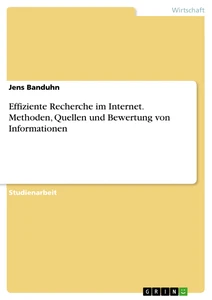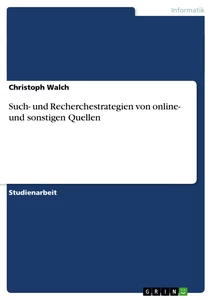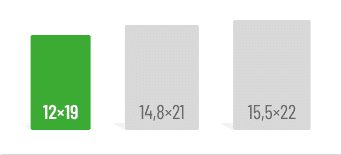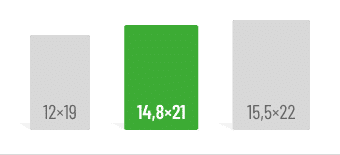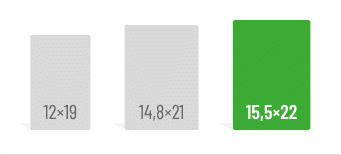As the semester draws to a close, exams and a few term papers are on the horizon. You’re already familiar with conducting literature research in libraries and feeling confident, but the lingering effects of the Covid-19 lockdowns are still making research more challenging. Libraries may be partially or completely inaccessible, opening hours might have changed, and other restrictions could apply. So, you’re considering conducting your literature research almost entirely online — but is that even possible? Here, we’ll show you how to make it work.
Good preparation is half the job
This applies to literature research in general and online research in particular. Start by carefully reviewing your topic and research questions, identifying the key terms for your paper (usually no more than ten keywords). When searching online, it can be tempting to enter full sentences or questions directly, but this often yields an overwhelming number of results—many of which will be irrelevant to your topic. Sifting through this excess literature can be time-consuming. Instead, it’s more effective to enter each keyword individually or combine a few related terms in the search bars of databases. This approach will help you quickly find relevant resources for your topic.
The databases
Now that you’ve identified your keywords, it’s time to start exploring databases. A great starting point is meta-catalogs like the Karlsruhe Virtual Catalog (KVK). These allow you to search through German and international library collections by selecting the catalogs most relevant to your topic. In addition to libraries, you can also include booksellers in your search. Meta-catalogs like this provide a broad overview of the literature available on your subject, helping you determine whether your keywords need further refinement. Besides keywords, you can also search by author, title, publication year, or identifiers like ISBN, ISSN, or ISMN (unique codes assigned to specific works or publications), especially if you have a reading list from your seminar at hand.
Through large databases, you can also access smaller, more specialized databases to search for sources specific to your field. These are often featured on your university’s or your department’s website. A quick Google search will likely lead you to your university’s overview page, where you can find curated resources for your studies.
If you want to get an unrestricted overview of the various databases and libraries at the beginning, it is worth taking a look at the Database Information System (DBIS). This lists the databases sorted by subject. The search via Google Scholar has also proven to be particularly effective. This search engine specializes in scientific texts and research literature and thus offers you more suitable search results for your term paper than the classic Google search engine.
Another widely recognized tool is the Online Public Access Catalogue (OPAC), which also functions as a meta-catalog. Its key advantage is that most universities provide their own OPAC, eliminating concerns about access permissions for individual works. The catalog links you directly to online resources and includes the holdings of university libraries, making it a convenient and comprehensive option for your research.
You might also be interested in these articles:
Online resources, digital copies and lending
If you have found literature via search engines and databases that lends itself as a source for your term paper, it will present itself to you in one of the following ways:
Some works – especially those whose publication was only a few years ago – are already available as e-books. These are usually available as PDF files for download or you can at least read them in your browser. Access is usually subject to a fee, but you can bypass this by logging in to the respective platforms through your college or educational institution. However, there is a limitation here, as not every university provides access rights for every database . In such cases, you can use the information you already know about the publication to search for your literature in other databases or libraries. For example, if you access directly via your university’s OPAC , you can be sure that you have access rights through your university.
Older literature is increasingly being made available as online resources. These are digitized versions — essentially scans — of existing printed works. You can access these digital copies just like other online resources. Unlike printed books, they offer the advantage of allowing you to print them out, annotate directly on your computer, or highlight important sections in the text. It’s always worth checking for digitized versions, even if you could borrow the printed book from the library.
Finally, despite access restrictions, libraries still offer the option to borrow materials from their collections. If you find works available through your library’s online databases, you can usually place a hold on them. In most cases, the books will be prepared for you to pick up on-site.
Another very good option for online research is also GRIN. Here you can research over 260,000 scientific publications and also have a wide selection of free papers to match your term paper topic.
Researching almost exclusively online sounds like a higher amount of time and effort at the beginning. But once you’ve warmed up to each database and what it can do, you’ll find it just as easy as traditional library research.
By the way, citing online resources works the same way as citing printed books. If you’d like to brush up on your citation skills, feel free to read more here: The Pinnacle of Academic Rigor: Proper Citation.
GRIN publications on the topic:
Newsletter registration
Never miss a magazine article or article again. You can sign up for our GRIN newsletter here.



